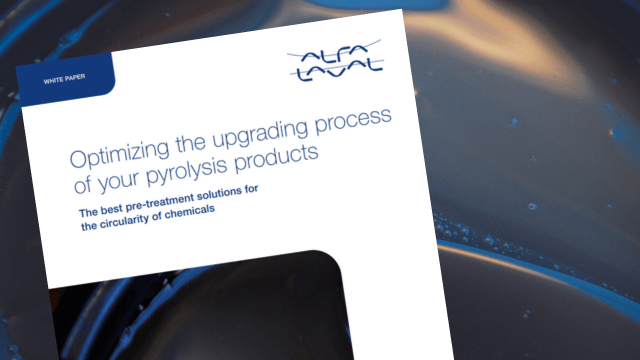
The carbon molecule is the cornerstone of the chemical, fuel, and plastics industries. Adopting a circular carbon approach is crucial to making these industries sustainable. By transitioning to using carbon from renewable sources such as captured CO2, biomass, and recycled materials, we can reduce the reliance on from fossil carbon. This process, known as defossilization, is key to achieving a circular landscape.
Next week, Alfa Laval is participating in the Renewable materials conference, the world’s largest conference on chemicals and materials based on biomass, CCU or chemical recycling. On the conference, we will launch our brand-new whitepaper “Optimizing the upgrading process of your pyrolysis products” which displays the best pre-treatment solutions for the circularity of chemicals.
Did you know?
In 2050, recycled carbon will account for more than 50 % of the carbon molecules embedded in chemicals and materials. Technologies that enable advanced recycling of a wide range of materials will thus play a crucial role in de-fossilization. Pyrolysis is an important enabler that makes it possible to convert solid waste (plastic, tires) into new materials, giving solid waste a new life. Alfa Laval separators contributes with a dual value in the process, decontamination and fouling abatement through the value chain to convert waste into a new life.
Pyrolysis whitepaper | Alfa Laval
Author
Anne-Marie de Moei-Galera (Alfa Laval)
Source
Alfa Laval, original text, 2024-06-12.
Supplier
Share
Renewable Carbon News – Daily Newsletter
Subscribe to our daily email newsletter – the world's leading newsletter on renewable materials and chemicals










